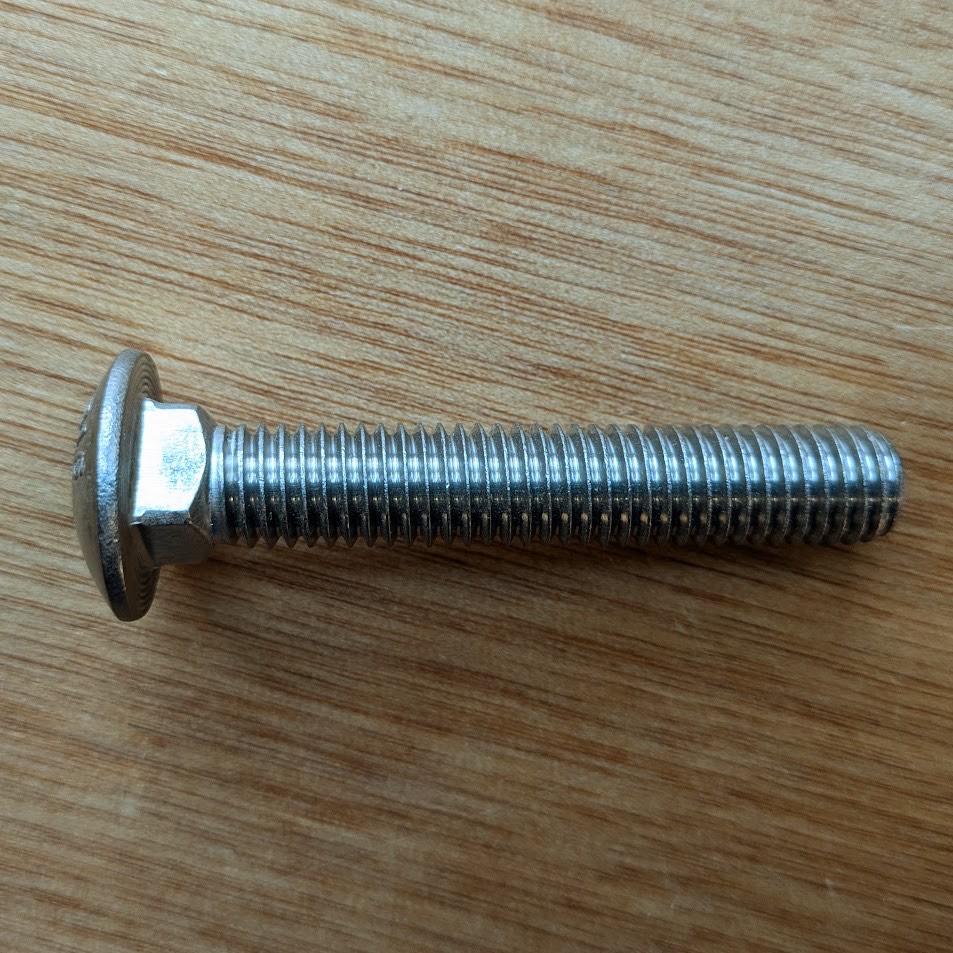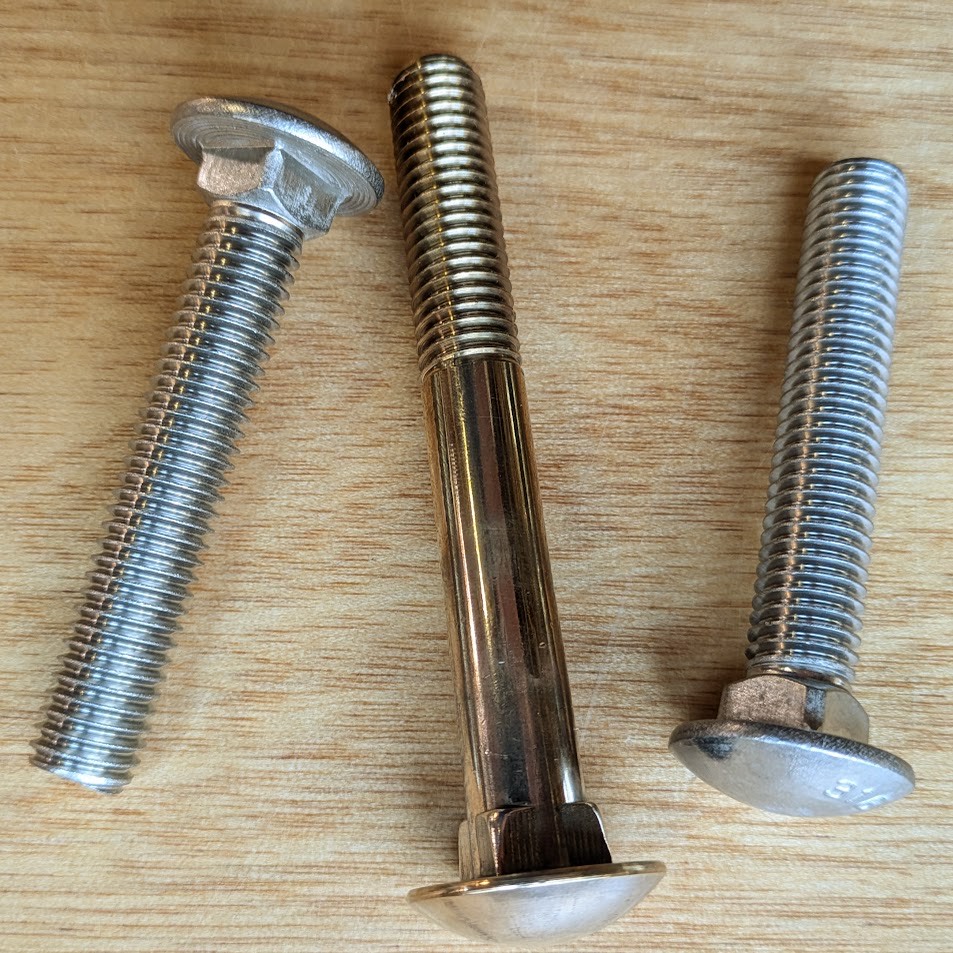Carriage bolts, often recognized by their smooth, domed heads and square necks, are essential fasteners in many construction and woodworking projects. Though seemingly simple, these bolts have a rich history and a variety of applications that make them indispensable. Whether you’re a seasoned DIY enthusiast or a professional in the construction industry, understanding the nuances of carriage bolts can help you select the right fasteners for your projects. Here are 11 facts about carriage bolts that you should know.
1. Origins and Evolution
Carriage bolts have been used for centuries, with their origins tracing back to the early 19th century. Initially designed for use in wooden carriage and wagon construction—hence the name “carriage bolts”—these fasteners were crucial for holding together wooden components under heavy loads. The bolt’s design allowed it to be securely fastened without the need for additional tools to hold the bolt head in place. Over time, the use of carriage bolts has expanded beyond carriages and wagons to include a wide range of construction and industrial applications.
2. Unique Design Features
One of the most distinctive features of a carriage bolt is its domed, rounded head. This smooth head provides an aesthetic finish and eliminates sharp edges, making it ideal for applications where appearance matters, such as in furniture construction. Beneath the head, a square neck is designed to fit into a corresponding square hole or bite into the wood, preventing the bolt from spinning when a nut is tightened on the other end. This design feature allows for easy installation without needing a wrench or pliers to hold the bolt head in place.
3. Material Choices and Durability
Carriage bolts are manufactured from a variety of materials, each chosen for specific properties depending on the application. The most common materials include:
- Steel: The most widely used material, steel carriage bolts are strong and versatile, suitable for many general-purpose applications.
- Stainless Steel: For environments exposed to moisture, such as marine or outdoor settings, stainless steel carriage bolts are preferred for their corrosion resistance. Marine-grade 316 stainless steel is especially popular in coastal areas due to its superior resistance to saltwater corrosion.
- Silicon Bronze: Often used in boat building and restoration, silicon bronze carriage bolts are valued for their resistance to seawater corrosion and their traditional, attractive appearance.
Each material offers different levels of strength, corrosion resistance, and aesthetic appeal, making it important to choose the right material for your specific application.

4. Applications in Woodworking
Carriage bolts are a staple in woodworking projects, particularly in furniture making, decking, and other structural wood applications. The square neck of the carriage bolt fits snugly into a pre-drilled hole in the wood, preventing the bolt from turning as the nut is tightened. This feature is especially useful in scenarios where only one side of the bolt is accessible during installation, such as in through-bolt applications. The rounded head of the carriage bolt also sits flush with the wood surface, reducing the risk of injury from protruding metal and giving a clean, finished appearance.
5. Common Uses in Construction
In construction, carriage bolts are frequently used in framing, fencing, and the assembly of wooden structures. Their design makes them ideal for securing wooden beams, posts, and panels together, providing a strong and stable connection. Carriage bolts are also commonly used in metal-to-wood connections, such as securing metal brackets to wooden posts. Their strength and ease of installation make them a popular choice for both professional builders and DIY enthusiasts.
6. Size and Thread Options
Carriage bolts come in a wide range of sizes to accommodate various applications. The length of the bolt is measured from the underside of the head to the tip, and diameters range from small (1/4 inch) to large (1/2 inch or more). Carriage bolts also feature coarse or fine threads, with coarse threads being more common for general-purpose use. Fine threads are typically used in applications requiring greater precision and holding power. It’s important to select the appropriate size and thread type for your specific project to ensure a secure and lasting connection.
7. Installation Tips and Tricks
Installing carriage bolts can be straightforward, but there are a few tips and tricks to ensure a smooth and secure installation:
- Pre-drill a Pilot Hole: To avoid splitting the wood, always pre-drill a pilot hole slightly smaller than the bolt’s diameter. This also helps the square neck of the bolt to bite into the wood more effectively.
- Use a Mallet: If the square neck doesn’t immediately engage with the wood, gently tap the head of the bolt with a mallet to seat it firmly into the wood. Avoid using a hammer, as this can damage the bolt head.
- Tighten the Nut: Once the bolt is seated, use a wrench to tighten the nut on the opposite end. The square neck should prevent the bolt from spinning, but if you encounter resistance, check that the bolt is fully seated in the wood.
8. Corrosion Resistance
One of the primary reasons for choosing carriage bolts made from stainless steel or silicon bronze is their resistance to corrosion. In outdoor or marine environments, standard steel bolts can quickly rust, compromising the integrity of the structure they are holding together. Stainless steel, particularly marine-grade 316 stainless steel, offers excellent resistance to rust and corrosion, making it ideal for outdoor furniture, decking, and boat construction. Silicon bronze is another excellent option for maritime applications, as it not only resists corrosion but also develops a patina over time, adding to its aesthetic appeal.
9. Security Applications
Carriage bolts are often used in security applications because of their tamper-resistant design. The smooth, domed head of the bolt can only be accessed from one side, making it difficult to remove without the proper tools. This makes carriage bolts ideal for securing gates, doors, and other structures where unauthorized access is a concern. The square neck also prevents the bolt from being easily loosened from the outside, adding an extra layer of security.
10. Environmental Considerations
For environmentally conscious builders, the choice of material for carriage bolts can have a significant impact on the sustainability of a project. Stainless steel and silicon bronze are both highly durable and long-lasting, reducing the need for frequent replacements and minimizing waste. Additionally, both materials are recyclable, making them a more eco-friendly choice compared to some other materials. When selecting carriage bolts for a project, consider the environmental impact of the materials used and opt for sustainable options whenever possible.
11. Custom Manufacturing Options
While standard carriage bolts are readily available in a variety of sizes and materials, some projects require custom solutions. Custom manufacturing allows for carriage bolts to be produced in non-standard sizes, materials, or finishes to meet the specific needs of a project. For example, a historical restoration project might require silicon bronze carriage bolts with a particular patina to match existing hardware. Custom manufacturing can also produce carriage bolts with unique thread types, such as British Standard Fine (BSF) or British Standard Whitworth (BSW), which are not commonly available off the shelf.
Conclusion
Carriage bolts are more than just simple fasteners; they are versatile, durable, and essential components in a wide range of applications. Whether you’re working on a woodworking project, constructing a building, or securing a gate, understanding the unique features and benefits of carriage bolts can help you make the right choice for your needs. From their origins in carriage construction to their modern-day use in security and marine applications, carriage bolts have stood the test of time as a reliable and indispensable fastener. By considering factors such as material, size, and installation techniques, you can ensure that your carriage bolts provide a strong and lasting connection in any project.











